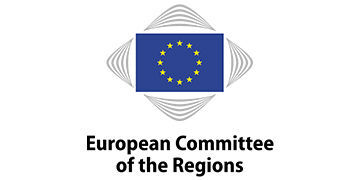 Homepage CASE
Homepage CASE
Selected values

Rural areas and the geography of discontent
-
Date:
1 Oct 2023 - 31 Jan 2024
-
Client:

-
Project duration:
01.10.2023 - 31.01.2024
-

Agnieszka Kulesa
Specialist in Social Sciences
Agnieszka Kulesa has been working at CASE since 2018. She specialises in the labour market, international labour migration, and migration policies within and outside the European Union.
Projects from this author:
- Capacity building for local and regional authorities in the light of the Ukraine Facility (Pillar III)
-
FUTURE FOR ALL – Advancing Cross-Generational Collaboration through Futures Literacy (FFA)
The primary objective of the “FUTURE FOR ALL - Advancing Cross-Generational Collaboration through Futures Literacy (FFA)” project is to encourage active participation of citizens in the life of their respective neighborhoods with a specific emphasis on promoting intergenerational cooperation. The project addressed to elderly and youth residing in youth sociotheraphy centres (and the educators of the respective groups) identifies specific objectives: Face social problems between generations and contributing to lifelong learning Fight stereotypes, improve mutual knowledge and understanding Transfer of knowledge between Norway and Poland, and exchange of experience in applying futures thinking tools in working with intergenerational group Equip seniors and (socially maladjusted) youth with Futures Literacy tools to help them achieve developmental goals for their life stage Raise awareness of the local environment and a sense of responsibility, and agency to improve it To achieve these goals, the project intend to leverage the innovative approach of Futures Literacy to empower and engage the two crucial demographics. Futures Literacy is a concept and methodology developed by the UNESCO that presents an altered perspective on how to perceive and engage with the future (UNESCO, n.a.). It is a cognitive skill and a framework designed to enhance one’s capacity to comprehend, navigate and shape the complex and uncertain nature of the future. Apart from Futures Literacy approach the project will use additional activities designed to address key issues and encourage intergenerational collaboration such as: anti-stereotype and integrational workshops to provide a platform for both generations to openly discuss and challenge stereotypes that may hinder effective collaboration and understanding Urban Game Design: The elderly will take the lead in designing an urban game for the youth, offering them an opportunity to explore and connect with the city they know from a different perspective Planting activity: A shared activity of planting flowers will be organised to foster active citizenship and environmental awareness among the groups. Intergenerational trip: Organisation of a day trip to a museum or a concert chosen by either the elderly or the youth hold immense potential for interesting experiences among the participants The activities planned in the project support intergenerational cooperation, leverage the strengths of different age groups, creating a synergy that is particularly relevant in the context of modern world. By promoting understanding, collaboration, and mutual support among generations we can collectively adapt to and address the complex challenges of today’s rapidly changing world. The project will also strengthen bilateral cooperation between Poland and Norway in the area of building social capital in local communities. It will be achieved by a Polish and a Norwegian organisation that will combine their experiences in supporting active citizenship in their various environments and by using their different areas of expertise. Funding: Fund for Bilateral Relations, hereinafter referred to as the “FBR” the European Economic Area Financial Mechanism 2014-2021 and Norwegian Financial Mechanism 2014-2021 Project Leader: CASE Project Partner: Fremtenkt
-
Study on affordable sustainable housing in the EU
The study will contribute to the reflection on possible policy solutions to affordable sustainable housing in the EU, by examining a number of initiatives taken at (sub)national level innovating in the field of housing and determining how these could be relevant in a European context. The current challenges surrounding the availability of affordable and … Continued
-

Martyna Gliniecka
Martyna Gliniecka holds a PhD in Linguistics, specialising in cross-cultural communication, from the University of Wroclaw. She is awaiting the finalisation of her second PhD in the Culture and Society field from Western Sydney University, Australia. She previously led and participated in research projects in the Young and Resilient Research Centre at Western Sydney University, aiming to better young people’s lives and their resilience in the domains of technology and health. She specialises in qualitative research methods, participatory methodologies, and digital research (e.g., digital ethnography). She is especially interested in online communities and their role in the growing domain of youth digital health.
Projects from this author:
-
Fact or Fiction: Developing Inquiry and Critical Thinking Skills in Youth
Our mission is to inspire youth aged 12-19 to practice intelligent disobedience—doing what’s right despite pressures. Our main objective is to equip adolescents with the skills to confidently navigate the rapidly evolving digital environment and develop key competencies and digital resilience for independent functioning in adulthood. The project will be based on the participatory approach to ensure our workshop scenarios are evidence-based and address the real needs of today's youth and educators. Outputs’ testing and implementation will equip participants with essential critical thinking skills for navigating a complex online world. On-site and international online multiplier events will ensure widespread dissemination of our activities and results, amplifying the impact among adolescents and educators. Participants will explore social impact, cognitive biases, and topics like economics and online culture, sharpening their ability to distinguish facts from opinions. Educators will gain insights into digital education tools and strategies for nurturing students’ CT and information verification skills. Deliverables include 18 CT workshops for youth, supported by a report with themed scenarios and exercises for integrating CT skills into daily lessons.
-
Methodologies for Teamworking in Eco-Outwards Research (METEOR)
Key words: doctoral education, transversal skills, sustainable development, On December 1st, the METEOR project started, funded under the Horizon program. The project, led by CASE and implemented with the participation of 11 other partner organizations and one associated partner from Brazil, will last 36 months. The overall aim of METEOR is to improve the transversal skills of current postgraduates and early career researchers, with consequent benefits to research ecosystems, in line with Open Science and Responsible Research and Innovation (RRI) and focused on the UN Sustainable Development Goals. METEOR emphasizes the capacity to collaborate, work in groups and to develop international transdisciplinary projects oriented towards societal challenges and doctoral employment opportunities. METEOR has 6 specific objectives (SO) corresponding to its work package structure: SO1: Effective Management (WP1). SO2: Collect, analyse and report evidence supporting the need for an innovative doctoral training program (WP2). SO3: Develop a comprehensive transversal skills training program comprising a suite of 10 online training resources, using participatory methodologies co-created with the PhDs, ECRs, institutions and researchers, to enhance the skills specified in the Call (WP3). SO4: Implement the resources from WP3 and related activities in online and in-person delivery mode, with online and F2F events, and Peer Mentoring Groups consisting of 4-6 researchers collaborating for 15 months, with a target of 300 +/- individuals in 50 groups, preparing 50+ proposals based on UN SDGs and focused on impact (WP4). SO5: Create policy and exploitation routes for increasing the scope of doctoral training at local and national levels (WP5). SO6: Communicate and disseminate METEOR activities and results to a wider audience and ensure project’s continuity beyond the funded period (WP6). METEOR activities will benefit doctoral candidates (employment prospects/ earnings), institutions (recruiting PhD candidates, better supervision, more impactful research), industry/public sector (employees with high level research and transversal skills) and society generally (more research focused on challenges). Grant: This project has received funding from Horizon Europe – the Framework Programme for Research and Innovation (2021-2027) call: HORIZON-CL2-2024-TRANSFORMATIONS-01 under grant agreement No 101178320 — METEOR. Project leader: CASE - CENTRUM ANALIZ SPOLECZNO- EKONOMICZNYCH- FUNDACJA NAUKOWA (CASE) Partners: NORD UNIVERSITET (NU), THE OPEN UNIVERSITY (OU), UNIVERSITA DEGLI STUDI DI VERONA, (UNIVR), EUROPEAN UNIVERSITY - CYPRUS LTD (EUC), JYVASKYLAN YLIOPISTO (JYU), KASTAMONU UNIVERSITESI (KU), ILIA STATE UNIVERSITY (ISU), CEEI BURGOS (ES), HACETTEPE UNIVERSITESI (HU), ROSKILDE UNIVERSITET (RUC), SYNYO GmbH (SYNYO), State University of Bahia (UNEB, associated partner)
- Updating the CoR material on the Division of Powers
-
Fact or Fiction: Developing Inquiry and Critical Thinking Skills in Youth
-

Marek Peda
Marek Peda is responsible for managing research projects funded by European, national, multilateral, and private donors. Mr. Peda has over 10 years of professional experience as a project manager and in conducting research. He gained international exposure while working on projects for international organizations and academic institutions in Spain and the United States. Mr. Peda … <a href="https://case.dev10.pro/project/rural-areas-and-the-geography-of-discontent/">Continued</a>
Projects from this author:
-
How the EU should prepare for the enlargement in terms of governance, policies and investments: options and choices made from a territorial perspective
In its 2023 enlargement package, the European Commission recommended that the Council open accession negotiations with Ukraine and Moldova. Moreover, it recommended that the Council grant Georgia the status of candidate country and open accession negotiations with Bosnia and Herzegovina, once the necessary degree of compliance with the membership criteria has been achieved. The … Continued
-
The means for cities and regions to support the energy transition in the Mediterranean
Since February 2022, the war in Ukraine has significantly reshaped the geopolitical landscape and exacerbated the multiple challenges and tensions in the Mediterranean region. The conflict has highlighted the vulnerability of traditional energy supply routes, and the need to reassess future energy development strategies in the Mediterranean region. Like the COVID-19 pandemic, geopolitical uncertainties … Continued
-
Natural disasters: anticipatory governance and disaster risk management from a local and regional perspective
The COVID-19 pandemic, the war right on our doorstep, the devastating floods in Slovenia, wildfires in Greece and Cyprus, relentless heatwaves in Italy and Spain, to name just a few: all of them highlight the need to better prepare for, cope with and recover from disasters and crises. It is one of the most important challenges for … Continued
-
How the EU should prepare for the enlargement in terms of governance, policies and investments: options and choices made from a territorial perspective
EU skepticism, anti-EU votes in EP, and national elections have increased over the past 10 years, mainly driven by a combination of long-term economic and industrial decline, low levels of education, and lack of local employment opportunities. Rural areas are often characterised by a combination of these factors.
The goal of the project commissioned by the Committee of the Regions is to provide data on voters’ choices in rural areas and the possibility of different voting patterns in those and in urban areas, building on the recent study by DG REGIO and taking into account a selection of subnational elections. The outcome of the study will contribute to the CoR’s key messages in the run-up to the EP elections 2024 with a view to shaping decisions on post-2027 support to rural areas and ways of involving rural citizens, and highlighting the possible contribution of LRAs to countering Euroscepticism and strengthening European democracy. The outcome of the study will feed into the European Commission’s report on the implementation of the Long-term vision for rural areas scheduled for early 2024. It will be also used for the follow-up to the Conference on the Future of Europe, notably concerning the proposals on European democracy, and for future EuropCom editions.
The study will analyse the data on elections from DG REGIO’s study, using the rural-urban regional typology to verify:
- whether there are specific voting patterns in rural areas compared to non-rural areas;
- how these voting patterns are likely to develop in the future if the development trap is not addressed in rural areas (analysis of alternative scenarios);
- what factors or combination of factors influence votes in rural areas with a high level of soft and/or hard Eurosceptic votes.
The study will also try to answer whether these voting patterns for European and national elections correspond to electoral choices in selected subnational (local and regional) elections. Reasons for differences in these voting patterns will be examined.
Client: Committee of the Regions
Project leader: Milieu Consulting
Project partner: CASE
Related projects
Thanks for joining us!
You're now part of a community that values [your newsletter's focus]. Get ready to stay informed, inspired, and engaged with our carefully curated content.
